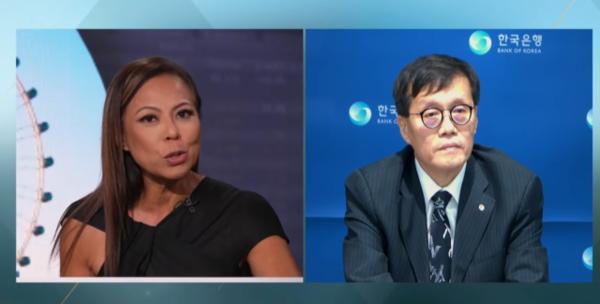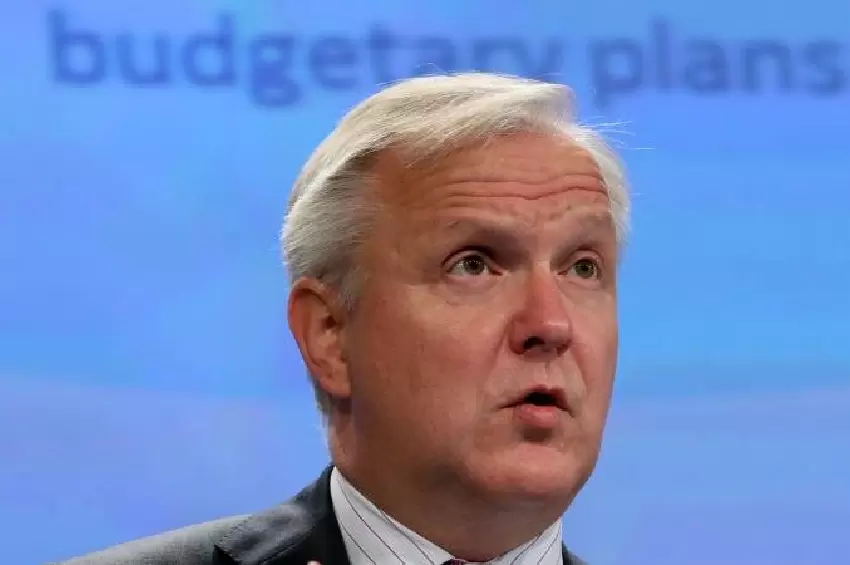Bank of Korea Governor Rhee Chang-yong on Bloomberg TV
Bank of Korea Governor Rhee Chang-yong dismissed the possibility of further rate cuts on Dec. 4, stating that "there is no reason to change the economic outlook due to this political event" in relation to the martial law situation. Rhee appeared on Bloomberg TV that afternoon and responded to the host's question about the possibility of further rate cuts due to the political situation by saying, "Structural changes such as global value chains are more important in deciding interest rates." He added, "We have swiftly implemented market stabilization measures, and despite the martial law situation, the financial market is operating normally."

Rhee introduced the fact that he held an emergency macroeconomic and financial issues meeting (F4 meeting) overnight with Deputy Prime Minister and Minister of Economy and Finance Choi Sang-mok, Financial Services Commission Chairman Kim Byung-hwan, and Financial Supervisory Service Governor Lee Bok-hyun. He described the F4 meeting as "a communication channel built over the past two years where all economic issues are decided," and explained, "The meeting body worked well last night and continued to handle related economic issues this morning."
Regarding some concerns that the martial law situation could escalate into large-scale protests, he said, "If the president had maintained martial law, it would have been an important variable, but martial law has been lifted at the National Assembly's request." He continued, "The citizens, politicians, and political system of Korea are mature. Protests have always existed," adding, "There may be noise surrounding the president's impeachment, but the impact will not be significant."
Rhee also pointed out that the Bank of Korea held an emergency Monetary Policy Board meeting that day and decided to supply liquidity to the market by purchasing repurchase agreements (RPs). According to the Bank of Korea, the scale of this RP purchase amounts to 151 trillion 200 billion won.









Comments